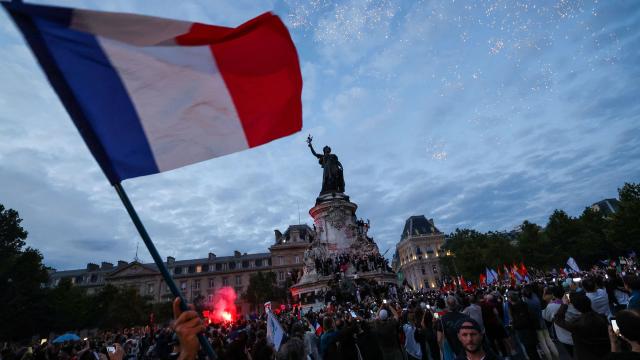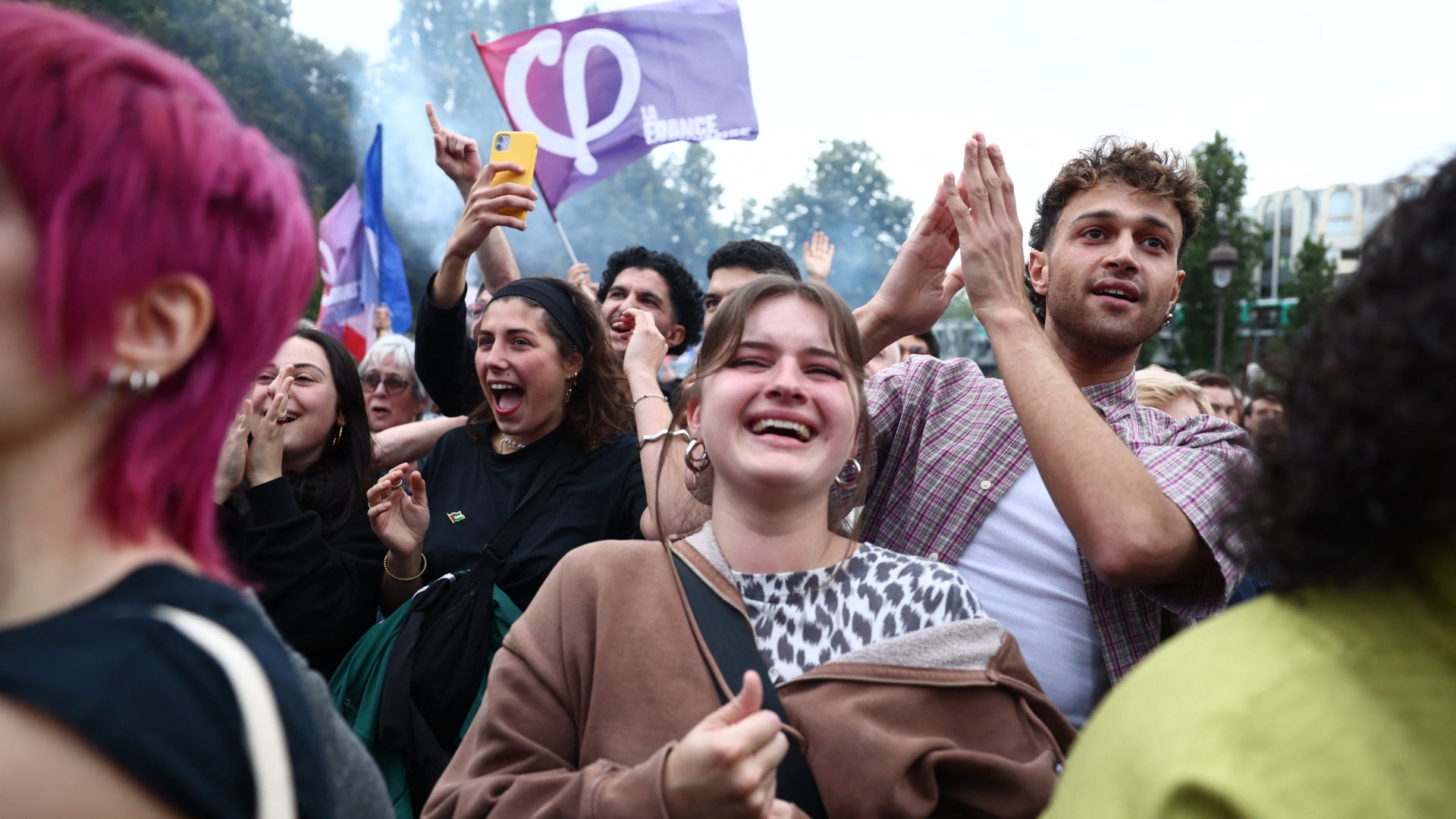
A leftwing coalition came top in French parliamentary elections concluding earlier this month, yet the far-right continue to grow and remain an imminent threat.
The far-right party National Rally topped the polls in France during the EU election in June. In reaction, President Emmanuel Macron called snap parliamentary elections for July 7, gambling to put an end to ever-increasing support for National Rally.
Hoping his neoliberal coalition would gain, he was half right. A newly formed left alliance came first (188 seats), Marcon's coalition was second (161 seats), and National Rally came third (144 seat), down from top place after the first round.
Despite this, National Rally still won their highest ever number of votes and the left alliance is hardly united. It is made up of the hard-left party Unbowed, as well as Communists, Socialists and Greens. Even if it remains together, it lacks a parliamentary majority.
With the parliament fractured into three blocs, the far-right remains an immediate danger. As Marine Tondelier from the Green Party said after the elections, this was a warning: “The Republic held on, but for how much longer?”
Left alliance wins
The far-right were predicted to win the parliamentary elections, yet the left alliance (aka New Popular Front) came out on top. Its election pledges included undoing the neoliberal reforms and austerity pushed by President Macron's Ensemble coalition, including reversing pension reforms and public service cuts, reintroducing higher taxes for the richest and increasing the minimum wage.
To hold the far-right back, the New Popular Front and Ensemble withdrew weaker candidates, so those strongest placed went head-to-head against National Rally in the second round. This, alongside tactical voting, pushed the far-right into third.
The European football championship ran from mid-June to mid-July. This drew even more attention to their leading players, such as Marcus Thuram and Kylian Mbappé, who made public calls to stop the far-right from winning. The French team – La Bleus – has for over thirty years taken a stand against facism and the National Rally.
National Rally want to exclude people from French life who have African or other heritages, and the party's xenophobia masks how French colonialism explains France's multi-ethnic mosaic — a reality shown in the French team, with many players' roots spreading beyond France's shores.
La Bleus were part of a larger swathe of France resisting National Rally. Starting on June 9, there were waves of counter protests in towns and cities across France.
For instance, in the Atlantic port city of Le Havre – a city with a history of challenging the Nazis – artists, comedians, unions, activist groups and other organisations combined for a mass rally on June 23. Its message was summed up by a lyric of local hiphop artist Médine, of mixed French and Algerian background, who said the election was about celebrating France's diversity. “The strength of culture, facing the culture of strength.”
In Le Havre, the left alliance candidate, only narrowly behind, dropped out of the second round, meaning the centrist party candidate could comfortably beat National Rally's candidate.
Parliamentary dilemmas
Many commentators are now asking whether France is ungovernable. Custom dictates the Prime Minister comes from the largest block. Yet with 188 seats, the left alliance is far short of the required 289 majority.
The current prime minister has tendered his resignation, but President Macron has not immediately accepted it, likely hoping the alliance will fall apart — something that has happened before, when the same parties formed a similar alliance.
How the situation resolves is unclear. The leftwing coalition needs a prime minister candidate and fast, yet potential candidates have very differing agendas. Macron's coalition may try to lure the softer-left parties to form a new coalition.
Yet any political skulduggery may well backfire, and reduce support in the next election, further opening the door for National Rally, not least for the 2027 presidential elections. Meanwhile, a political stalemate and a divided French parliament also run the risk of playing into the National Rally's hands in future elections.
This is why there are calls for the same anti-far-right confluence to support the leftwing alliance in parliaments from the streets.
Macronism opened door for far-right
At the start of Macron's first presidency in 2017, National Rally had 8 seats. They now have 142. His presidency deserves considerable blame for their rise. His initial pitch was centrism, neither Left or Right. Yet his actions contradict his rhetoric. Years of cuts and austerity and neoliberal reforms have produced waves of protests and anger. The French state has countered these ever more violently by using France's already heavily militarised police.
Macron shifted right and supported the police to deal heavily with those deemed as dissidents, but this is just a lighter version of the National Rally message. As a result, National Rally has gained ever more support in the police ranks.
This is an allegory about Macron creating a favourable situation for the far-right — on one level, by creating an even more draconian police force. More broadly, there are many examples where Macron has pushed lighter versions of National Rally – immigration is another example – leading some voters to go for the stronger version.
National Rally has also successfully disconnected itself from its past. Originally called National Front, its co-founders included a Holocaust deniers and Nazi collaborators in WWII. Many far-right politicians across Europe are succeeding now with this tactic, drawing deep concerns. From Mussolini and Hitler onwards, fascists have succeeded at the ballot boxes by convincing enough people they are not that far right.
Horrendously, comparisons with the rise of fascism a century ago are no longer hyperbole. To counter this in France, there are resounding calls for the mobilisations to continue that kept the far-right out at this election, and to support the left alliance.
This popular movement will be essential to escape the business as usual politics, the political deadlock, and to shut the door firmly against France's far-right.














